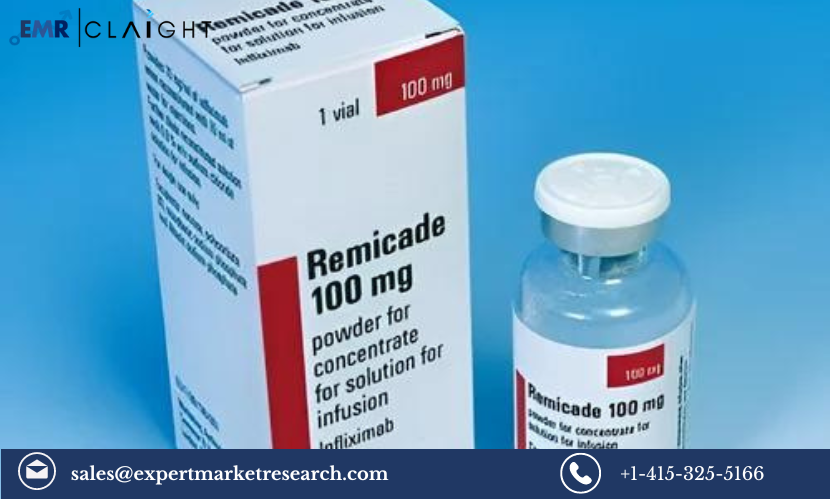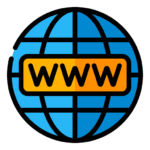
Infliximab Drug Market Size, Share, Growth, Report, Analysis 2024-2032
In the realm of pharmaceuticals, the landscape is ever-evolving, marked by dynamic shifts influenced by technological advancements, demographic changes, and the continuous quest for improved healthcare solutions. Among the myriad of medications, one that stands out is infliximab, a biologic drug widely used in the treatment of various inflammatory conditions. As we delve into the intricate facets of the infliximab drug market, we uncover a tapestry woven with market size and share, trends, industry segmentation, outlook, and forecasts spanning the period 2024-2032.
Market Size and Share:
The global infliximab drug market has witnessed steady growth, propelled by several factors. A pivotal driver is the escalating prevalence of rheumatoid arthritis, a chronic autoimmune disorder affecting millions worldwide. In 2023 alone, the number of reported rheumatoid arthritis cases hovered around 35.35 million. This staggering figure serves as a testament to the pressing need for effective treatment options, with infliximab emerging as a frontrunner in alleviating the symptoms associated with this debilitating condition.
Trends:
In the ever-evolving landscape of pharmaceuticals, trends play a pivotal role in shaping market dynamics. One notable trend observed in the infliximab drug market is the increasing emphasis on personalized medicine. With advancements in genomic research and molecular diagnostics, healthcare practitioners are now equipped with the tools to tailor treatment regimens to individual patients, optimizing therapeutic outcomes while minimizing adverse effects.
Furthermore, the growing acceptance of biosimilars has emerged as a prominent trend in the infliximab market. Biosimilars, which are biologic products highly similar to an approved reference product, offer cost-effective alternatives without compromising on efficacy or safety. This trend is poised to reshape the competitive landscape, driving down prices and expanding access to infliximab therapy.
Industry Segmentation
Indication-based Segmentation:
- Rheumatoid Arthritis: Rheumatoid arthritis (RA) is a chronic autoimmune disorder characterized by inflammation of the joints, leading to pain, stiffness, and swelling. Infliximab, along with other biologic agents, is widely used in the treatment of RA, helping to alleviate symptoms and slow disease progression.
- Crohn’s Disease: Crohn’s disease is a type of inflammatory bowel disease (IBD) that causes inflammation of the digestive tract. Infliximab is approved for the treatment of moderate to severe Crohn’s disease, where it helps reduce inflammation and induce and maintain remission.
- Psoriasis: Psoriasis is a chronic skin condition characterized by red, itchy, and scaly patches on the skin. Infliximab is indicated for the treatment of moderate to severe plaque psoriasis in adults who are candidates for systemic therapy.
- Ankylosing Spondylitis: Ankylosing spondylitis is a type of arthritis that primarily affects the spine, causing inflammation, stiffness, and pain. Infliximab is used to reduce symptoms and improve mobility in patients with ankylosing spondylitis.
- Ulcerative Colitis: Ulcerative colitis is another form of IBD that causes inflammation and ulcers in the lining of the colon and rectum. Infliximab is approved for the treatment of moderate to severe ulcerative colitis, helping to induce and maintain remission in affected patients.
- Others: Apart from the aforementioned indications, infliximab may also be prescribed for other inflammatory conditions, including psoriatic arthritis, juvenile idiopathic arthritis, and Behçet’s disease, among others.
Distribution Channel-based Segmentation:
- Hospital Pharmacies: Hospital pharmacies play a crucial role in the distribution of infliximab, particularly for patients receiving treatment in a hospital setting or outpatient infusion center. These pharmacies ensure the safe and timely administration of infliximab therapy under the supervision of healthcare professionals.
- Retail Pharmacies: Retail pharmacies provide convenient access to infliximab for patients who prefer to pick up their medications from local pharmacies. These pharmacies may stock infliximab products and dispense them to patients with a valid prescription from their healthcare provider.
- Online Pharmacies: With the proliferation of e-commerce, online pharmacies have emerged as a convenient option for purchasing infliximab and other prescription medications. Patients can order their medications online and have them delivered to their doorstep, eliminating the need for physical visits to brick-and-mortar pharmacies.
Geographical Segmentation:
The infliximab drug market can also be segmented based on geographical regions:
- North America: This region comprises the United States and Canada, where the prevalence of inflammatory conditions such as rheumatoid arthritis and Crohn’s disease is relatively high. The presence of established pharmaceutical companies and robust healthcare infrastructure contributes to the growth of the infliximab market in North America.
- Europe: Europe is another key market for infliximab, with countries like Germany, the United Kingdom, and France leading the way. The region boasts a large patient population and favorable reimbursement policies, driving the demand for infliximab therapy.
- Asia-Pacific: The Asia-Pacific region holds immense potential for the infliximab market, fueled by the rising incidence of inflammatory diseases and improving healthcare access. Countries like China, Japan, and India are witnessing significant investments in biotechnology and pharmaceutical research, paving the way for market growth in the region.
- Latin America: Latin America represents an emerging market for infliximab, characterized by growing awareness of inflammatory conditions and increasing healthcare expenditure. Countries like Brazil, Mexico, and Argentina are witnessing a surge in demand for biologic therapies, including infliximab.
- Middle East & Africa: While still relatively nascent, the Middle East and Africa present opportunities for market expansion due to improving healthcare infrastructure and rising disease burden. Countries in the region are increasingly focusing on addressing the unmet medical needs of patients with inflammatory conditions, driving demand for infliximab and other biologic therapies.
Get a Free Sample Report with a Table of Contents: https://www.expertmarketresearch.com/reports/infliximab-drug-market/requestsample
Market Overview:
The infliximab drug market is characterized by intense competition, with several key players vying for market share. Prominent pharmaceutical companies, including but not limited to, AbbVie Inc., Pfizer Inc., Johnson & Johnson, Merck & Co., Inc., and Celltrion Inc., have invested significant resources in research and development to enhance the efficacy and safety profiles of their infliximab formulations.
Forecast Period 2024-2032:
Looking ahead, the forecast period of 2024-2032 holds promise for the infliximab drug market. The prevalence of rheumatoid arthritis is projected to grow at a compound annual growth rate (CAGR) of 1.3% during this period, reaching an estimated 39.54 million cases by 2032. This surge in disease burden underscores the critical importance of continued innovation and investment in the development of novel therapies to meet the evolving needs of patients worldwide.
Key Players
- Zydus Cadila
- Pfizer
- Samsung Bioepis
- Celltrion
- Sandoz
- AbbVie
- Hospira
- Epirus Biopharmaceuticals
- Janssen Biotech, Inc.
- NAPP Pharmaceuticals
- Nippon Kayaku
- Alvogen
FAQs:
Q: What is infliximab, and what conditions does it treat?
A: Infliximab is a biologic drug used to treat inflammatory conditions such as rheumatoid arthritis, Crohn’s disease, psoriasis, ankylosing spondylitis, ulcerative colitis, and others.
Q: What are biosimilars, and how do they impact the infliximab market?
A: Biosimilars are biologic products highly similar to an approved reference product. They offer cost-effective alternatives to branded biologics, driving competition and expanding access to infliximab therapy.
Q: Which companies are prominent players in the infliximab market?
A: Prominent players in the infliximab market include AbbVie Inc., Pfizer Inc., Johnson & Johnson, Merck & Co., Inc., and Celltrion Inc., among others.





Leave Your Comment